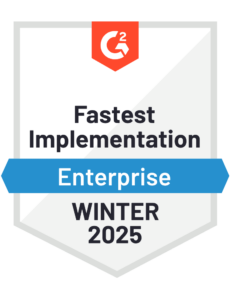5 Digital Transformation Opportunities Every CFO Needs to Succeed
Blog post
Share
The role of the CFO is more than just numbers—it’s the heartbeat of an organization’s financial health and strategic direction. A great CFO doesn’t just manage challenges; they transform them into opportunities, driving the organization toward success. But in today’s fast-paced, unpredictable business landscape, this is no small feat.
What are the biggest hurdles CFOs face today? And how can these obstacles be leveraged to unlock new opportunities for growth and innovation?
Opportunity #1: Make Time Count by Reducing Waste and Redundancies
Modern CFOs are expected to do more with less. To meet these demands, they must eliminate inefficiencies and free up their teams to focus on high-impact, strategic initiatives.
Cutting-edge technologies such as AI, Gen AI, and Machine Learning are game-changers in this regard. They automate complex processes—like financial closes, budgeting, and forecasting—allowing finance teams to shift their focus from transactional tasks to strategic decision-making.
Key Takeaway: Streamline repeatable tasks with the right tech to unleash your team’s full potential.
Opportunity #2: Embrace a Technology-Driven Approach
The days of spreadsheets and legacy tools are over. Today’s CFO must be a technology trailblazer, embracing purpose-built solutions that align with enterprise goals.
By automating routine tasks, CFOs empower their teams to provide value-added services, such as long-term forecasting and consumer behavior analysis. This shift not only drives efficiency but also enhances the CFO’s role as a strategic advisor.
Key Takeaway: Leverage modern tools to transform your finance team into a strategic powerhouse.
Opportunity #3: Float Up to Cloud 9
If your financial data isn’t in the cloud, you’re missing out on a critical advantage. Local storage systems are prone to inefficiencies like version control issues, inconsistent audit trails, and accessibility challenges.
Cloud-based solutions provide a unified, secure, and accessible data environment, enabling real-time collaboration and reliable decision-making.
Key Takeaway: The cloud isn’t just an upgrade; it’s a necessity for modern finance teams.
Opportunity #4: Deliver Timely Data and Analytics-Based Insights
In an ever-evolving business environment, CFOs need to provide leaders with accurate, actionable insights at lightning speed. Yet, scattered data and outdated tools often make this task a monumental challenge.
Centralizing financial data with the right technology allows CFOs to generate forward-looking analytics that drive smarter decisions, faster.
Key Takeaway: Centralized data and advanced analytics are the secret to staying ahead in a competitive market.
Opportunity #5: Attract and Retain Top Talent
The accounting talent pipeline is shrinking, and CFOs must find creative ways to attract and retain top professionals.
By adopting technologies that make work more engaging and less tedious, CFOs create an environment where talent thrives. Cloud-based solutions also expand hiring possibilities, enabling organizations to build globally dispersed teams that collaborate seamlessly.
How CFOs Start Turning Challenges into Opportunities
- Make Bold Investments in Finance Tech: Prioritize solutions that offer real-time insights, integration, and scalability to future-proof your organization.
- Focus on the Right Technologies: Seek out tools that address fragmented data and inconsistent processes while boosting efficiency and control.
- Align Governance with C-Suite Collaboration: Integrate people, processes, and technology with support from key stakeholders to maximize ROI.
Written By: Nicole Tallman






